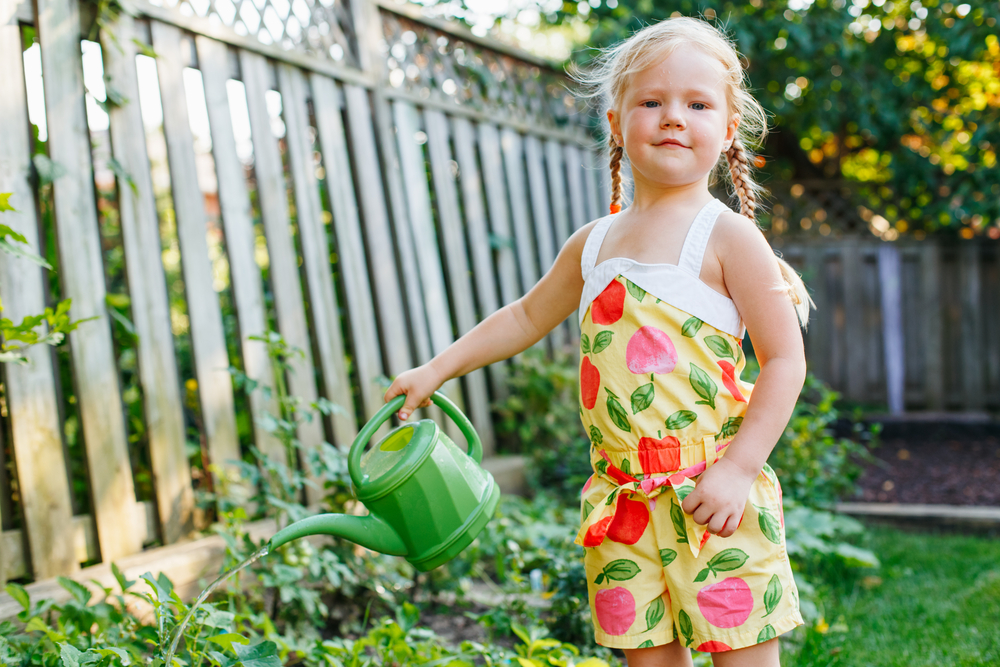
10 Feb 5 Tips to Teaching Your Young Child Responsibility
As parents we want to teach our children the things in life that will make them good people. We want them to learn how to be a caring and thoughtful person, creative and innovative, a good listener. The list goes on and on. One of the most important traits that is high on this list is responsibility. We all want to raise responsible children. It would be nice to live in a society where everyone was raised responsibly, a world where adults make responsible decisions. As my mother used to say, “If you want children to keep their feet on the ground, put some responsibility on their shoulders.” Teaching your child responsibility at a young age is a gift to them, and let’s face it…a gift to you as well. We certainly don’t want to suddenly spring responsibility on a teenager and expect they will know how to follow through, or expect that they will even know how to complete the task that was given to them. Learning responsibility certainly does not happen in a day or even overnight, but it can be taught as early as 3 years old. Children love to see that they are responsible, powerful, and have the ability to respond to what needs to be done.
Here are 5 tips for teaching your child responsibility:
- MODEL THE EXPECTATION – As their parent and primary caregiver, you are the perfect person to model to your child what responsible behavior entails. Teaching by example is key. How do we model this for our children? We as parents are on time for scheduled events and appointments, we respect the rights of others, we clean up our own messes. All of these modeling behaviors teach our children the importance of punctuality, that we care about others, and that we respect our own property.
- DESIGNATE CHILD RESPONSIBILITY GRADUALLY – Children learn responsibility slowly almost in the same way they learn to walk and talk. Around the age of 3, a child can learn many self-care responsibilities such as brushing their teeth and washing their hands after they use the bathroom or before they eat. They can be required to put their dirty clothes in the hamper, take off their shoes when entering the house, put their toys away when playtime is over. These are all things that can be taught slowly, yet have a lasting effect as a child gets older.
- PROMOTE INDEPENDENCE – Although it sometimes may be more work for you, it is always wise when your child says, “I want to do it,” to let them. Working with your child to help them discover the satisfaction of contribution is more important than getting the job done quickly. Giving praise during this time is helpful also in promoting self-confidence and self-esteem.
- IMPLEMENT ROUTINE AND STRUCTURE – A child having a routine they can count on and consistent structure within the home is crucial for learning responsibility as it gives them a repeated opportunity to manage themselves through a series of tasks. It starts with mastering a bedtime routine and getting ready in the morning and as they grow it can turn into basic life skills like doing laundry or making their school lunch.
- ACCOUNTABILITY IS KEY TO CHILD RESPONSIBILITY – It is imperative in the learning process to promote accountability for your child’s actions or lack thereof. Children need to be held accountable for not meeting their responsibilities. A child being held accountable means that a parent must make a consequence worse than if a child had completed the task they were given. Being held accountable promotes a willingness to listen and encourages them to meet their responsibilities next time.
For more tips on teaching your child responsibility, here are some additional resources for you:
Developing Child Responsibility
Teaching Responsibility through Pet Ownership
Responsibility in the Cell Phone Age
Teaching Child Responsibility through Chores

North Shore Family Services is a team of skilled and approachable therapists that help parents, children, teens, adults, and couples reduce anxiety and stress, learn effective problem-solving techniques, and manage emotions and behaviors that inhibit personal, school, family, and relationship success. We make therapy a productive, engaging and relaxing place for everyone to work hard and make the improvements they desire. To find the right-fit therapist for you and your family, visit our clinician’s page.



Sorry, the comment form is closed at this time.